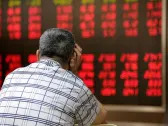SHANGHAI/HONG KONG (Reuters)
China’s stock exchanges and central bank have taken swift action to defend the tumbling yuan and falling stock markets on Monday. The measures aim to reassure investors who are growing increasingly concerned about Donald Trump’s return to the White House and Beijing’s ability to revive the economy.
Trump Uncertainty Hits Markets
As two weeks remain before Trump begins his second U.S. presidency, his threats of big tariffs on Chinese imports have shaken the yuan, driven mainland bond yields down, and given stocks a rough start to 2025. The yuan weakened to its lowest in 16 months on Monday, while the blue-chip stock index touched its weakest level since September.
Stock Exchanges Ask Mutual Funds to Restrict Sales
In a bid to stabilize the market, China’s tightly controlled stock exchanges asked large mutual funds to restrict their selling of stocks at the beginning of the year. Three sources familiar with the matter told Reuters that at least four large mutual funds received calls from the Shanghai and Shenzhen stock exchanges on December 31 and January 2-3.
Restricting Mutual Fund Sales
According to the sources, the exchanges asked the mutual funds to ensure they bought more stocks than they sold each day. This move underscores the jittery mood in the market as investors grow increasingly anxious about the impact of Trump’s tariffs on Chinese imports.
Central Bank Intervenes
The People’s Bank of China (PBOC) has been keeping a close eye on the yuan and may issue more yuan bills in Hong Kong in January, state-owned news outlet Yicai reported on Monday. This move aims to absorb currency and dampen speculation that could further weaken the yuan.
Preventing Yuan Decline Crucial for China’s Recovery
Charu Chanana, chief investment strategist at Saxo, emphasized the importance of preventing a sharp decline in the yuan for China’s recovery. "Any tactical recovery this year will need more than just stimulus measures, particularly whether China can negotiate a deal with President-elect Trump," she said.
China’s Economy Struggles to Recover
The world’s second-biggest economy has faced significant challenges over the past few years. A property downturn and slowing income have sapped consumer demand and hurt businesses, while exports were one of the few bright spots. However, they could face hefty U.S. tariffs under a second Trump administration.
Tariffs and Economic Recovery
The S&P 500 has risen 4% since the U.S. election in early November, but China’s CSI300 index has dropped 4.3%. European stocks are flat during this period. The worries around tariffs have led to concerns about Beijing’s ability to revive the economy.
Support Measures Introduced
Chinese authorities have introduced various support measures since September, including swap and relending schemes totaling $109 billion, to shore up investor confidence and put a floor under stocks.
Yuan Pressure Mounts
The yuan has hit multi-month lows since Trump won the U.S. election as the threat of tariffs along with worries about China’s sluggish economic recovery triggered capital outflows. The spot yuan hit 7.3301 per U.S. dollar on Monday, its weakest level since September 2023.
FX Reserves Provide Some Buffer
China’s FX reserves at $3.3 trillion may have some buffer for capital outflows, although depreciation and outflow would be negative for China’s equity market sentiment, BofA strategists said in a note.
Geopolitical Tensions and U.S. Policies
"Geopolitical tensions and potential US policies … could lead to higher cost of capital and multiple de-rating again in 2025," the BofA strategists noted. However, they believe that "the worst of flow/position-selling for the China market should have been over."
Central Bank Warns Against Low Bond Yields
The central bank on Friday warned fund managers against pushing bond yields even lower amid worries about a bubble in bonds. This move aims to prevent Beijing’s efforts to revive growth and manage the yuan from being hindered by low bond yields.
Investors Await Concrete Signs of Economic Recovery
While Chinese officials have announced various stabilisation measures, investors are still waiting for concrete signs that demand is responding. "Greater evidence is needed that China’s economy is responding to stabilisation measures," said HSBC’s chief Asia economist Fred Neumann.
Lunar New Year Celebrations a Key Test for Consumer Confidence
The impending Lunar New Year celebrations on January 29 will be a key test for consumer confidence, according to Neumann. "After many fits and starts over the past year, greater evidence is needed that China’s economy is responding to stabilisation measures," he said.
Sources:
- Reuters
- Yicai
- Saxo
- HSBC

